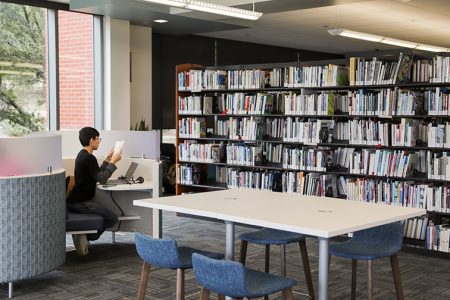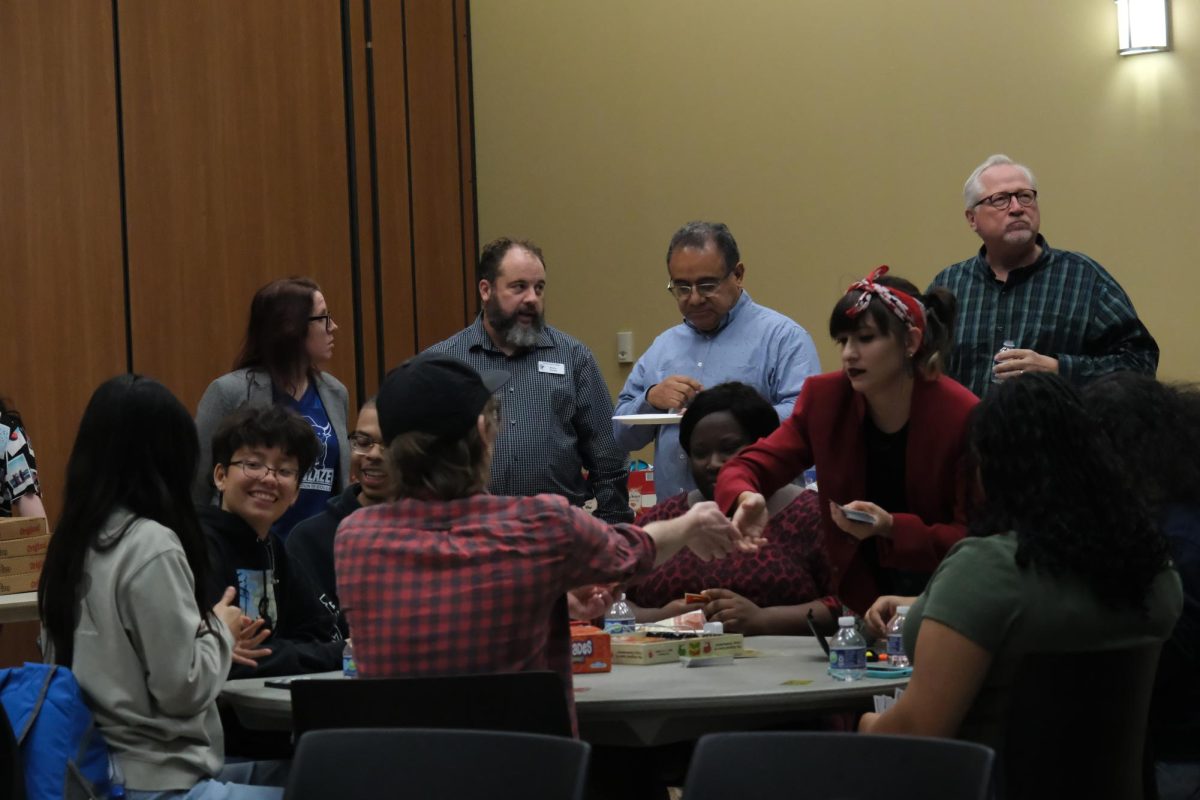
Joel Solis/The Collegian
KEYLA HOLMES
campus editor
keyla.holmes@my.tccd.edu
Arlington public libraries will display LGBTQ+ pride month materials in the teen and adult sections, but not in the children’s section.
On Oct. 28, Arlington’s library advisory board discussed and held public debate about LGBTQ displays in teen and children sections.
Before the board discussed guidelines, Arlington Public library launched a survey asking the public to provide input on the proposed accommodations.
According to KERA, the weeklong survey resulted in more than 1,800 responses. 1,062 didn’t support the restrictions on LGBTQ displays, 686 supported the proposal for displays to be kept to the adult section, 51 didn’t want displays anywhere and 17 was opposed to displays that are “controversial, political, sexual or offensive.”
With the new guidelines in place, SE library staff expressed concern for the fact that it was even up for debate.
“My opinion as a professional librarian, as a mother and as someone who works on the library board for my city, is that it’s not the kind of decision that should be a vote,” SE public services librarian Anna Hithersay said.
Similarly, SE library specialist Madison White doesn’t think LGBTQ guidelines in libraries are necessary.
“I don’t think there really should be guidelines,” White said. “I think it should be like any other book – freely shown and displayed.”
Due to the advisory board’s compromise that LGBTQ displays will be permitted in teen and adult sections, some feel this was the right decision.
“I believe the guidelines make sense because it still gives the LGBTQ community the opportunity to feel included,” SE student Eleanny Garcia said.
Though the displays will be in teen and adult sections, students and staff shared the ways in which this may be a disservice to children.
“I think the guidelines that the Arlington advisory board decided to make for the LGBTQ+ displays in the children section are disappointing,” SE student Alexis Santibanez said.
“Children should be given the opportunity to find books in which they connect with and see themselves in.”
Hithersay discussed the importance of representation for children.
“It’s concerning to me that we take away people’s access when we unilaterally remove books like that from a children’s area,” Hithersay said. “‘What about the children who live with an LGBTQ family?’ When they don’t get representation in their library it really affects them.”
She also expressed the way that representation has an impact on those in need of it.
“We know representation matters,”.Hithersay said. “We know representation doesn’t mean you have to change your beliefs, but we know it really matters to the people it matters to.”
Santibanez expressed that representation allows for children who don’t personally resonate to potentially develop a more compassionate viewpoint for people who do exist within the LGBTQ+ community.
“It’s important for children who aren’t in the LGBTQ+ community to be able to gain knowledge, and an understanding that in life there are people with different values and lifestyles,” he said. “This can help them comprehend that ‘different’ isn’t bad.”
White considers that while regular library visitors may be impacted, there also may be a change in regards to funders.
“I think that the public libraries that are changing the way they display books they consider controversial is really going to affect the people that show up, but also their donors,” she said.
“I mean every public library is funded by donor money on top of tax dollars, and so I think we are going to start seeing a shift there with what we have available to us.”
Despite some of the disappointment from students and staff, the acknowledgement that parents should have the ultimate say in what their kids read was still present when discussing the new guidelines.
“I believe in every household there are different sets of beliefs and that is acceptable,” Santibanez said. “I believe the limit to what a child should be able to read is up to their parents.”
Staff expressed that regardless it shouldn’t be a decision for the public to make.
“The foundational goal of libraries is to provide resources to everybody,” Hithersay said.
“It doesn’t matter who they are or why they’re there, they deserve access to resources that they need.”
Hithersay shared that children deserve access.
“I think if a child lives in a situation, they should have access to books and resources that talk about the situation they live in,”.Hithersay said. “It’s not a judgment. It’s simply that they deserve access.”




































